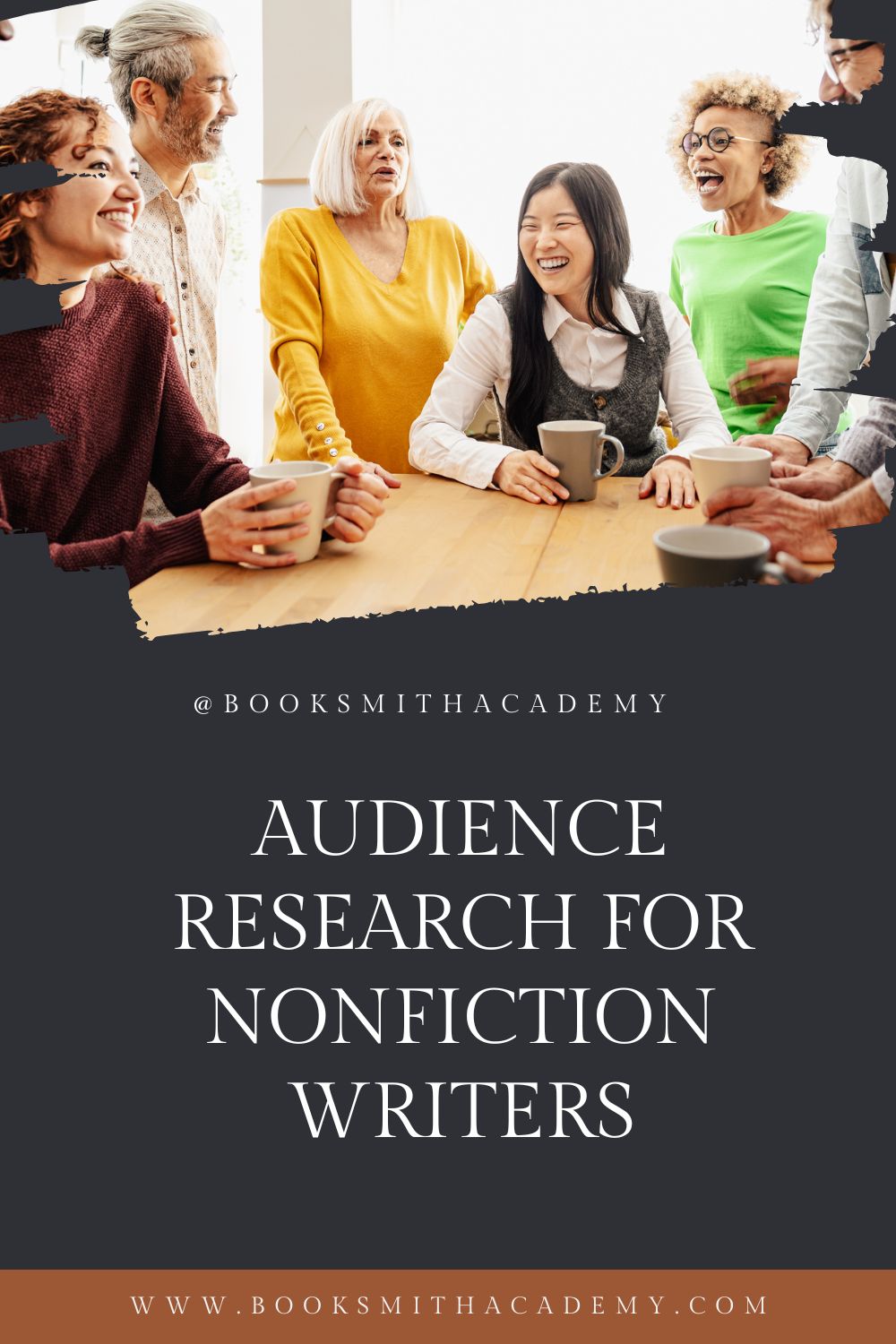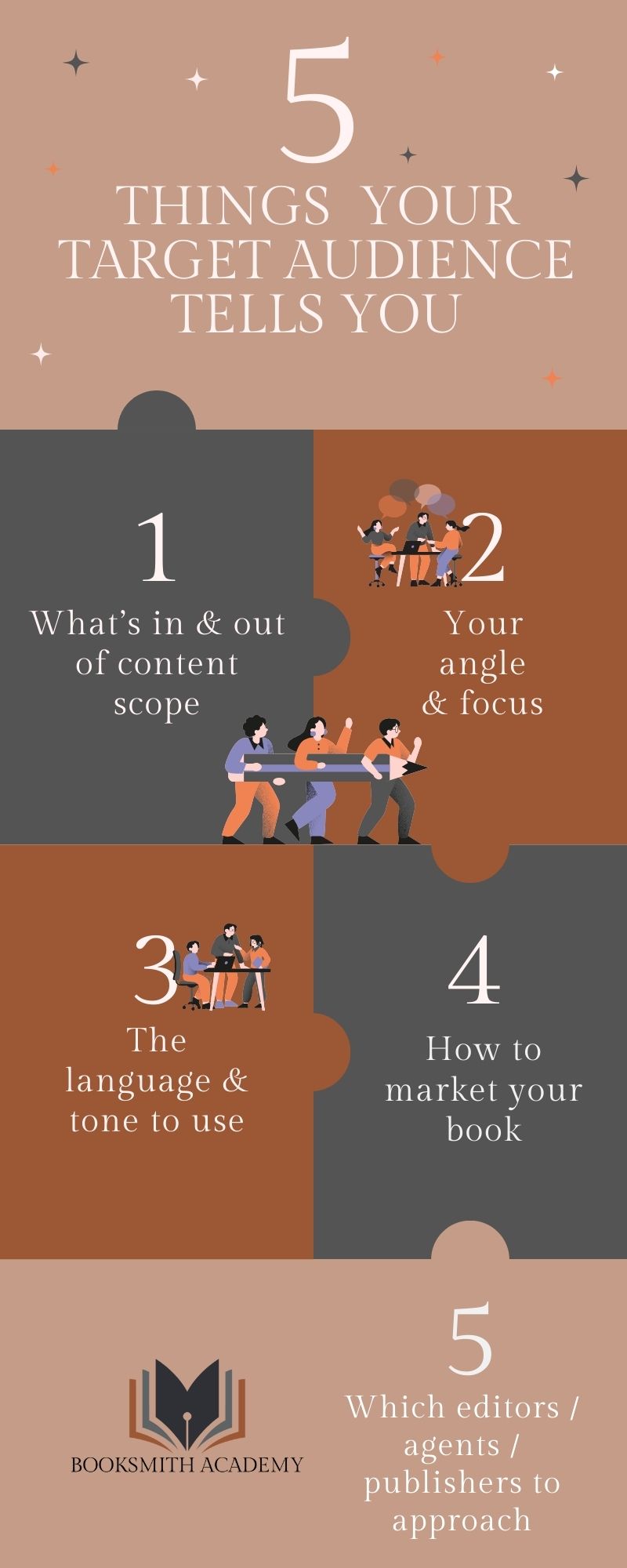
Audience research for nonfiction writers
The unexpected key to success
If there’s one thing you take away from this blog, dear writers, please let it be this: audience research is too important to overlook. Knowing who you’re writing for can shape nearly every aspect of your book, unlocking a whole world of answers that will guide you throughout the writing and publishing process. Read on to find out how.
Why topic research is not enough
So you might be a subject specialist or have researched the depths of your topic and feel you’re ready to share all you know with the world. Your brain is fizzing with facts and ideas and you’re desperate to get writing. And surely the key to being a successful nonfiction writer is to know your stuff, right?
Book research? Tick! Let’s go!
But wait. Without the answer to one big question, your book risks being harder to write, too broad in scope and impossible to market.
So step away from the keyboard/notebook and ask yourself:
Do I know who I’m writing for?
If the answer is no, let me explain why this question should not go unanswered.
Why you need to know your audience
If audience research is new to you, it might surprise you how much knowing your target readership will help you write your book. And not only that, it will help you write a great book that’s going to be read. The dream!
Just to clarify, your audience (or readership) is the group of people most interested in your book topic. The ones for whom your book might solve a problem. The ones most likely to buy and read your book.
Without having a specific interest group or reader demographic in mind, your book risks being too general, too unfocused, too everything for everybody (therefore nobody), and will, as a result, likely miss the mark. Without a target audience to write for, your generic gardening book gets lost in the woods. Your broad-scope bodybuilding book is too heavyweight. Your universal orienteering book is on the wrong track.
Knowing your audience allows you to carve out a niche that gives your book an interesting, marketable angle, which in turn keeps your content focused, your language relevant and your reader hooked.
For example, if you know you’re writing not just for gardeners, but specifically for green-fingered young adults with a disposable income and a garden of their own, then you write with them in mind, using language that will appeal to them, covering plants and designs that will satisfy their ambitions, interests and budget. And now your gardening book is no longer a general interest guide that will get lost in a thousand others. Now you have an interesting focus that keeps your content on track, weeds out (couldn’t resist!) the irrelevant material and hooks a particular kind of reader.
And bearing readership in mind is not only useful during the writing process; it can also help you find an agent, editor and publisher, and help to create a successful, targeted marketing strategy.
What’s your niche?
Much like publishers, editors and agents often work in a particular genre or niche. Knowing your target audience means you know your niche, which allows you to use that knowledge to direct your search for publishing professionals, saving you time and energy by narrowing down your potential leads. Specificity can be key. Often, the more specific you can be about who you’re writing for, the more chance you have of your book being noticed and picked up. Searching with specific keywords like ‘children’s cookbook editor’ or ‘young adult self-help publisher’ will throw up more helpful results and show those you approach that you are serious and savvy!
And when it comes to marketing your book, if it’s been written and presented with a specific audience in mind, it will more easily slot into a tried-and-tested marketing campaign, finding its target market with ease and thereby increasing the chance of sales.
5 reasons why knowing your target audience is key to success
So, remember, knowing who you’re writing for:
- keeps your book organised and focused
- informs you of what content is in and out of scope
- tells you what tone and language will work best
- gives your search for an agent/editor/publisher a higher chance of success
- helps to build a successful marketing campaign

Next month, we’ll be looking at how to identify your target readership with some super handy research resources and fab tips. Watch this space.
For more writing tips and wellbeing for writers advice, check out our other blogs and sign up to our bi-monthly Booksmith Academy newsletter.
If writing more is one of your goals for this year, join us in our new membership for writers and booklovers, InkWell Scribes, where we’ll be sharing our love of all things nonfiction and writer wellbeing in a like-minded and passionate community.


Trackbacks/Pingbacks